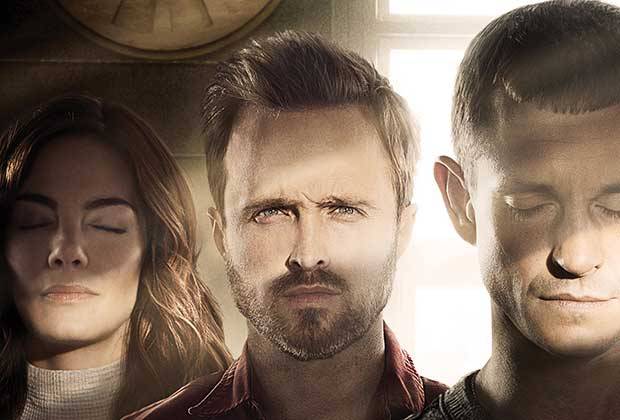 Here’s the news from the latest streaming serial drama: Cults can be bad.
Here’s the news from the latest streaming serial drama: Cults can be bad.
Is this news? Or is it even drama? The makers behind “The Path” (Hulu, streaming) take a long time to tell their story.
But in the first few episodes we learn that “Breaking Bad” favorite Aaron Paul plays a role closer to his smaller one in “Big Love,” a secretive organized religious offshoot that he is starting to have some doubts about.
His trouble is that he’s married with a family that are very comfortable into the midst of the religion; it’s easier for him to be mistakenly blamed for having an affair than to admit he’s been seeing an outside skeptic about the belief’s darker side.
Paul is also a producer of the work that comes in part from “Friday Night Lights” and “Parenthood” creator Jason Kati’s and is written by Jessica Goldberg, so the actor throws himself into the performances. And it’s good, too to see a cast that includes Michelle Monaghan, a standout in “True Detective” season one, and Hugh Dancy as the local cult leader who wants to give the Movement, as he calls it, a more public presence.
The true leader, though, is a guy named Dave who is ensconced in Peru in one of the series’ best inside jokes: Keir Dullea, re-enacting one of his roles in “2001: A Space Odyssey.”
“I wasn’t really looking to jump back into TV this quickly,” Paul told reporters at the TV Critics Association winter press tour earlier this year, “but my reps called and said, ‘You must read these first two episodes.’ And I read them, and I just could not ignore the material. It was just so gripping, just so beautifully written and well done.”
For Paul, who grew up in a religious family, “The Path” merely extends his interest in organized belief.
“I mean, I find religion sort of fascinating. There’s an endless amount of religions out there, and everyone, as humans are just desperately trying to find their questions. And, so, my father was a very intense Southern Baptist minister. I had to read the Bible multiple times, so I know the Scripture. So I am definitely drawn to that sort of story. When I read this, I was just blown away. My character is having some sort of doubt in the pilot episode, you come to realize. And so he’s really searching for his questions to be answered, trying to find the truth in them.”
To create the cult, Goldberg says “we sort of looked at how, you know, religion calls to so many people right now. And we culled from some of our favorite things, both Eastern and Western religions, and made our own faith. It’s taken from lots of different existing faiths and our own sort of fantasy of what you’re looking for when you’re in deep pain.”
It’s not that she wanted people to be cynical about religion.
“I think our goal is to look at both sides of religion, where it brings comfort, and then also where, when you go against the grain of the faith it provides cynicism. But there’s also great comfort to be taken in having a frame for your life. And I think that’s something a lot of us are seeking. So we’re doing both, hopefully.”
And despite its secrecy, paranoia, rules to keep away from biological family and use of weird little electronic devices to test your devotion, this has nothing to do with Scientology, its writer says.
“No,” says Goldberg. “This show really came out of a more personal experience for me. A few years ago, I had the double whammy of losing a parent and getting divorced in one year, and sort of found my little universe that I deeply believed in suddenly felt like Plato’s cave story, that [Hugh Dancey’s character] tells at the end of the first episode, where everything just felt like the world of shadows.
“I had grown up in Woodstock, New York, which is like a town that had tons of seekers and lots of New Age / crystally religions. So I had sort of grown up interested in all that. So really, it comes from like that personal experience that, unfortunately, most of us have in our life where we wake up one day and the ground you stood on is no longer ground anymore. And that’s really the leaping off point of the show for me.”
Says Dancy: “The basic thing that drives them all, is that they believe, and that they want to believe. Nobody thinks they’re in a cult, right? I think Stephen Colbert said, ‘If you’re wondering if you are in a cult, you are in a cult.’ But these guys, they are not having that thought. They’re just trying to improve their lives, strive for something, heal themselves, heal people. There is something beautiful about that, and that’s as to one of the two sides.”
“As an actor, one of the things that I felt appealing about this was really the exploration of religion and how it saves people and how far people are willing to go, or what they do in the name of religion,” says Monaghan. “I think that’s what the show brilliantly does, is really just explore the positive aspects, and then sometimes your convictions can take you down a rabbit hole of some darker things, and I think that’s what I thought was really interesting, personally and professionally, because we’ve all witnessed that, what people do in the name of religion. And so I was excited to get to tap into that.”